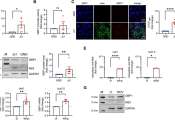Hepatitis C is an infectious disease affecting the liver, caused by the hepatitis C virus (HCV). The infection is often asymptomatic, but once established, chronic infection can progress to scarring of the liver (fibrosis), and advanced scarring (cirrhosis) which is generally apparent after many years. In some cases, those with cirrhosis will go on to develop liver failure or other complications of cirrhosis, including liver cancer.
The hepatitis C virus (HCV) is spread by blood-to-blood contact. Most people have few, if any symptoms after the initial infection, yet the virus persists in the liver in about 85% of those infected. Persistent infection can be treated with medication, peginterferon and ribavirin being the standard-of-care therapy. Only 51% are cured overall. Those who develop cirrhosis or liver cancer may require a liver transplant, and the virus universally recurs after transplantation.
An estimated 270-300 million people worldwide are infected with hepatitis C. Hepatitis C is a strictly human disease. It cannot be contracted from or given to any animal. Chimpanzees can be infected with the virus in the laboratory, but do not develop the disease, which has made research more difficult. No vaccine against hepatitis C is available. The existence of hepatitis C (originally "non-A non-B hepatitis") was postulated in the 1970s and proved conclusively in 1989. It is one of five known hepatitis viruses: A, B, C, D, and E.








